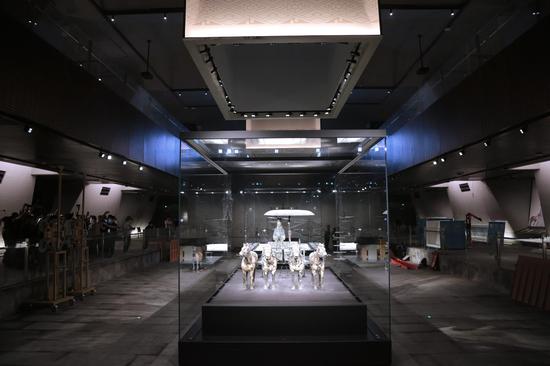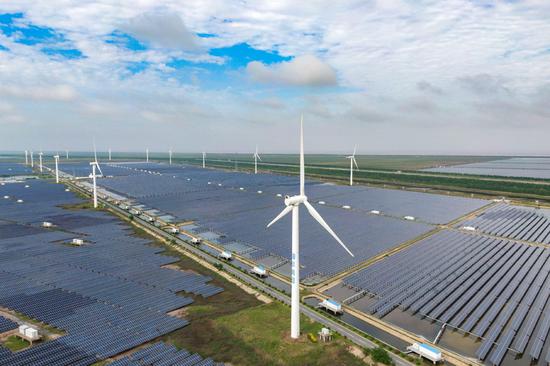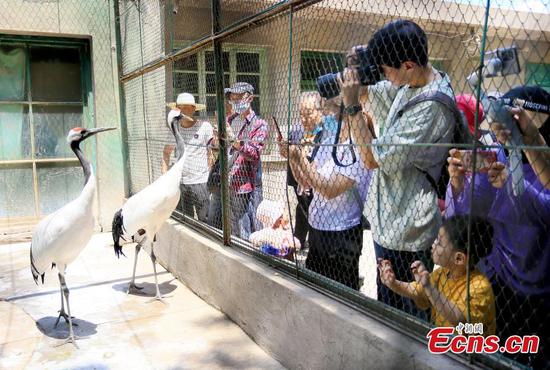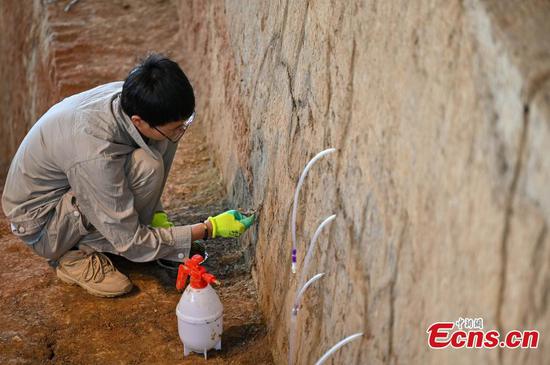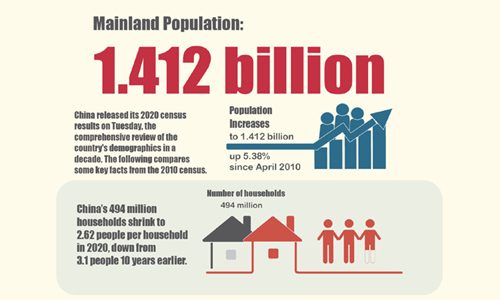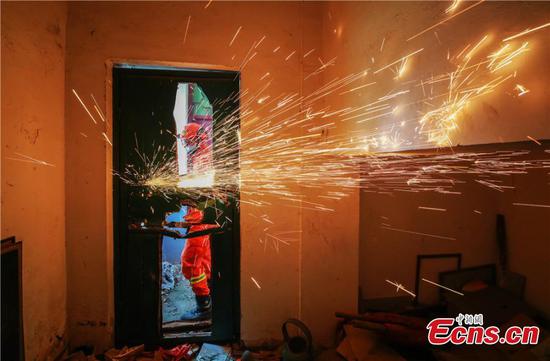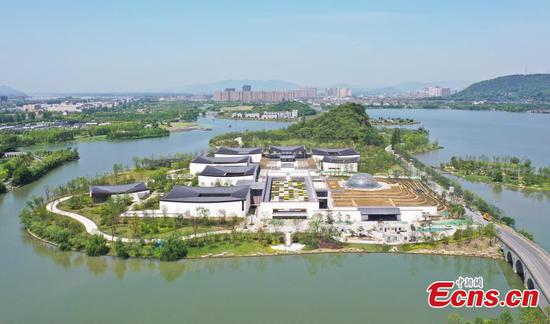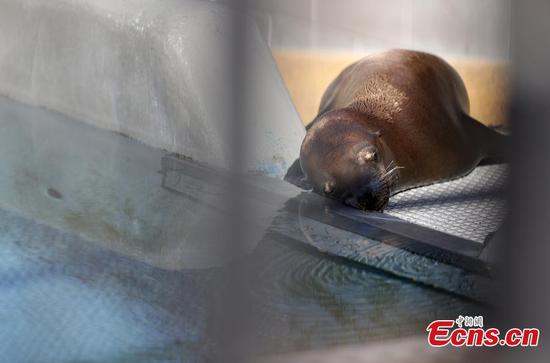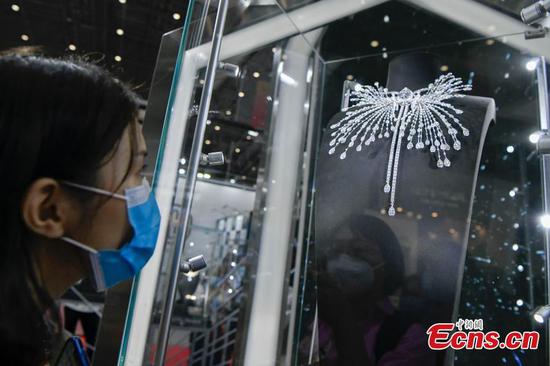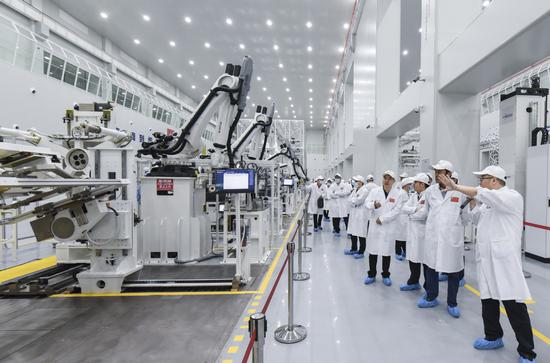
Guests visit the country's first smart assembly line for small satellites at Wuhan National Space Industry Base in Wuhan, Hubei province, on Thursday, as they attended a ceremony celebrating the first satellite made by the facility. (HU DONGDONG/CHANGJIANG DAILY)
China's first smart manufacturing plant for satellites has started formal operation in Wuhan, Hubei province, featuring an annual production capability of as many as 240 satellites, its owner said.
The first satellite made by the complex rolled off the assembly line on Thursday morning at a production commencement ceremony. The spacecraft, which has yet to be named, is expected to be launched in the near future to conduct communication operations, according to Lyu Dongming, chairman of CASIC Space Engineering Development, builder and owner of the plant.
The facility is able to produce 240 small satellites of multiple types-each weighing less than 1 metric ton-Lyu said, adding that its operation will substantially improve his company's manufacturing efficiency and will help to save a lot of time and manpower.
Lyu's company is a Wuhan-based subsidiary of State-owned defense giant China Aerospace Science and Industry Corp and is tasked by the parent company with developing, making and operating satellites.
Construction of the plant began in 2019 in Xinzhou district's Wuhan National Space Industry Base, the country's first commercial space industry hub, and finished in December 2020. Trial operation started soon after construction.
Liu Feng, one of the plant's project managers, said building a satellite involves dozens of steps, ranging from component installation and satellite assembly to electronic and mechanical tests, and the traditional production method requires all of them to be carried out manually.
"By comparison, our plant uses robots to perform major steps, which means we can improve the average manufacturing efficiency for satellites by more than 40 percent," Liu said.
CASIC, which specializes in missile and other defense technologies, has been striving since the past several years to tap into the country's booming satellite market.
In December, the Beijing-headquartered conglomerate conducted China's first technology demonstration tests using a low-orbiting satellite to enable 5G communication and internet-of-things services in Zhejiang province.
Once the space-based 5G technology becomes commercially operational, it will become possible for people to use telephone and internet services anywhere in the world, project managers said.















